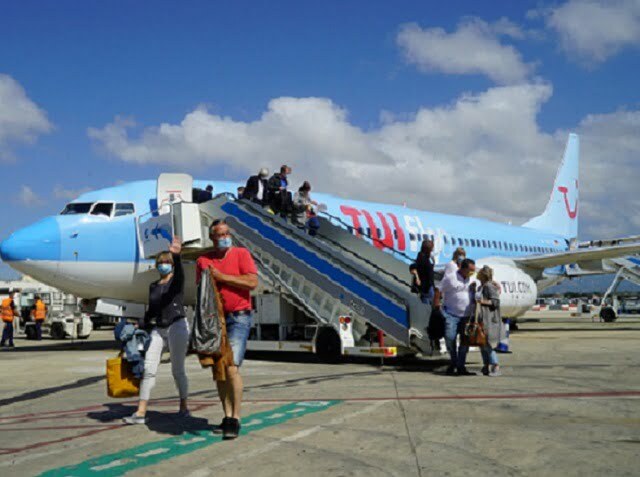Germany’s Robert Koch Institute (RKI) has announced this Thursday that they will be removing the Canary Islands from the regions considered at risk due to their incidence rates of coronavirus, though the rest of Spain continues to be blacklisted, which in turn will allow Germany to lift recommendations against travel to the islands.
The news was posted by the President of the Canary Islands, Ángel Víctor Torres, on his Twitter account saying “The German government decided last night, and due to the favourable epidemiological situation, that the Canary Islands leave the risk areas to which their compatriots able to travel. The measure goes into effect on October 24. Good news.” which represents a much needed boost for the floundering tourist sector in this sub-tropical archipelago ahead of the most important season of the year, winter, with Germany being the second largest source market for tourists to the islands, after the United Kingdom.
The change will apply from next Saturday October 24, at 00:00 local time (22:00 GMT), the RKI stated when updating their list of areas considered at risk due to the detected incidence of the virus. This is turn will pave the way for Germany to lift recommendations to avoid the islands.
The rest of the Spanish territory continues to be part of the list of areas to which the German authorities recommend not to travel.
The decision to include the Canary Islands in the list of risk areas for covid-19 was announced on September 2.
The Ministry of Foreign Affairs explained on its website that Germany maintains the recommendation not to make “unnecessary, tourist trips” to the entire Spanish territory but added the decision on the Canary Islands will be changed to reflect the positive data and indications regarding our handling of Coronavirus measures.
The whole of Spain, with the exception of the Canary Islands, has been included in the list of territories to which the German Government recommends to avoid traveling due to the pandemic situation since last August 14, just two months after the reopening of borders within the Shengen area.
The decision was made progressively, as Germany began by recommending not to travel to Catalonia, Aragon and Navarra and then extended this measure to Madrid and the Basque Country.
The measure resulting in Germany lifting recommendations has important economic consequences for Spain, for whom Germans are the second largest source market for tourism.









